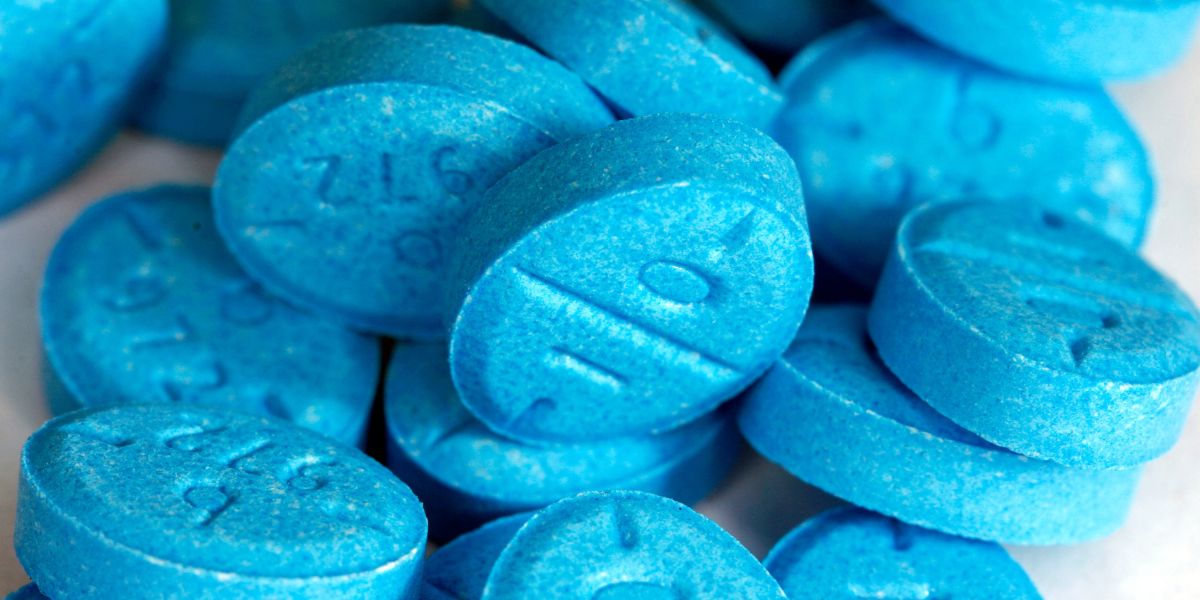Can You Overdose on Adderall?

Adderall is a familiar medication in the United States. The prescription medication is a combination of dextroamphetamine and amphetamine, central nervous system stimulants. Doctors commonly prescribe it to individuals managing attention-deficit hyperactivity disorder (ADHD). Although, despite the medicine’s popularity, it is essential to acknowledge that misusing Adderall can cause severe consequences, including Adderall overdose.
Adderall was approved by the US Food and Drug Administration (FDA) in 2002 to help with symptoms like short attention spans and impulsive behaviors. The prescription medication helps improve focus and lessen impulsivity. However, misusing Adderall is a common practice among individuals who seek to become more alert and cheerful.
College students and young adults often misuse Adderall to enhance their academic performance or to stay awake while consuming alcohol or other substances. However, misusing Adderall poses significant risks that can lead to addiction and Adderall overdose. Therefore, seeking assistance for addiction is crucial before the potential of a fatal overdose.
Adderall Abuse
Adderall is the second most abused drug in the US after opioids, posing significant risks to public health and safety. The National Institute on Drug Abuse (NIDA) research in the 1990s found a significant rise in the misuse of prescription stimulants and overdose increases. This is concerning because of the associated risk factors and addiction potential.
From 2006 to 2011, more people were hospitalized for non-prescription Adderall use. This tells us that problems with Adderall are growing.
If Adderall is not taken exactly as directed by a doctor, it can be dangerous. Mixing Adderall with drinks like alcohol or other medicines, especially ones for the brain, is risky. Individuals with heart conditions or high blood pressure should use Adderall with caution and follow the recommended dosage.
In 2008, Dr. Nora Volkow keenly observed a surge in the misuse of prescription medications, notably the widespread abuse of Adderall, accompanied by a concurrent decline in the illicit consumption of narcotics.
According to the NIDA, Adderall abuse means:
- Taking Adderall that doesn’t belong to you, like from a friend, or buying it illegally
- Going to different doctors to get more prescriptions and have more Adderall
- Taking more than the doctor told you to take or taking it more often
- Using Adderall in ways not prescribed by the doctor, like snorting, injecting, or opening capsules intended for slow-release
- Combining Adderall and alcohol or other substances
In 2018, a study by the Substance Abuse and Mental Health Service Administration (SAMHSA) discovered that close to 2 million people admitted to wrongly using prescribed stimulant drugs. Most of these people were aged 18 to 25 and were in college.
The main reasons people gave for misusing Adderall were:
- Using it as a “study drug” to help them remember things better, focus more, and do well in school
- Taking it to stay awake for more extended periods of time or to be more alert
- Using it to try to handle their mental health problems on their own
- Taking it to try to control their appetite and lose weight
- Using it for fun, sometimes with alcohol or other drugs to make the high stronger
Many believe that Adderall is safer than other medicines because doctors prescribe it to people of different ages. When used correctly, following a doctor’s advice, Adderall can help with ADHD problems. That’s why some call it a “study drug.” But misusing Adderall can lead to harmful effects or even taking too much, no matter the person’s age.

Can You Overdose on Adderall?
If someone is using Adderall without a prescription and for non-medical purposes, the amount that can be fatal is about 20mg to 25mg for every 2.2 lbs of body weight. For instance, a lethal overdose of Adderall would require approximately 1475 mg for an individual who weighs 130 lbs.
The amount of Adderall required for an overdose varies by individual. Doctors usually give between 5mg and 60mg of Adderall a day. How much you get depends on how sick you are and what’s unique about your condition.
Using Adderall for a long time can make you need more of it, want it a lot, and take too much. This can be bad for your health because Adderall can give you too much energy.
For some people trying it the first time, even a normal amount can hurt their heart. It can make your heart beat fast and raise your blood pressure. This is especially risky for people with heart problems.
Risk of Overdose
Adderall users should keep in mind that many dangerous and uncomfortable side effects can occur before a fatal overdose. Most people seek medical help at the emergency room because of those symptoms before a fatal outcome.
Mixing Adderall with drinks like alcohol can increase the risk of overdose and make you very sick, even if Adderall isn’t the direct cause. Taking Adderall with some mood-lifting medicines can cause a serious sickness called serotonin syndrome.
Because of the potential interactions and side effects, healthcare professionals will carefully evaluate a person’s medical condition and history before prescribing Adderall to minimize risks, complications, and the possibility of experiencing an overdose.
Side Effects of Adderall
Adderall changes the user’s brain chemistry by increasing serotonin, dopamine, and norepinephrine levels. If you take it without needing it, you may experience bigger problems because Adderall can change the way you think.
The side effects of Adderall include:
- Feeling more awake and alert
- Having a dry mouth
- High blood pressure
- A faster heart rate
- Feeling dizzy
- Nausea, which can make you feel like you need to throw up
- Having a decreased appetite, which means not feeling as hungry
- Feeling restless or unable to sit still
- Experiencing pain in the abdomen or stomach area
- Having diarrhea
- Feeling constipated
- Feeling anxious or worried
- Irrational thoughts, known as Adderall psychosis
- Getting chills, which can make you feel cold even when it’s not
- Sweating more than usual
- Having a headache
- Talking more than usual
- Feeling the need to keep talking
- Having trouble sleeping
Some problems with medicine can start small but get bad quickly and become long-term complications. If you think someone has overdosed, call 911 right away.

Adderall Overdose Symptoms
An overdose of Adderall, also known as amphetamine poisoning, may initially appear as severe side effects but can escalate to physical and mental overdose symptoms that could lead to death. Immediate medical intervention is necessary to treat an Adderall overdose.
Signs and symptoms of an overdose of Adderall include:
- Muscle pain
- Involuntary or excessive reflexes
- Blurred eyesight
- Throwing up
- Elevated body temperature
- Disorientation
- Seeing things that are not there or visual hallucinations
- Rapid or labored breathing
- Aggression
- Abdominal discomfort
- Loose stools
- Tiredness
- Stiff or inflexible limbs
- Eyes rolling backward
- Incoherent speech
- Irregular heart rhythm
- Changes in blood pressure
- Pain in the chest
- Seizures
- Heart attack
- Unconsciousness

Dial 911 or immediately seek medical help if you notice even one of these symptoms. While waiting for emergency assistance, attempt to keep the individual relaxed and awake. Be prepared to share any details about the substances they’ve consumed, the quantity, and any known medical history.
Adderall Addiction Treatment
Should you or a family member be battling an addiction to Adderall or any substance use disorder, evidence-based treatment is available and accessible.
At Northridge Addiction Treatment Center, we recognize that battling Adderall addiction involves addressing the physical and psychological elements of substance abuse. Our cozy and confidential residential treatment facility provides you with a new beginning backed by the assistance of a caring, proficient, and licensed team.
Our therapeutic strategies are customized to your specific requirements, objectives, and situations. We evaluate residents for concurrent disorders and provide in-house medical detoxification to facilitate your withdrawal process most safely and comfortably.
By employing a variety of therapeutic methods and exercises, we tackle the underlying causes of addiction and assist you in acquiring the skills and self-assurance to conquer them, paving the way for a life grounded in recovery.
Contact our compassionate team of admissions specialists at NATC today; we are ready to assist you in beginning your journey to recovery. Reclaim your life today!
Find Meaningful Recovery
Our caring and compassionate specialists are eager to help you comfortably navigate this journey to recovery. Our individualized treatment plan, programs, and therapies may be a perfect match for you or your loved one. Let us assist you in living the happy life you deserve. It starts with a phone call.




